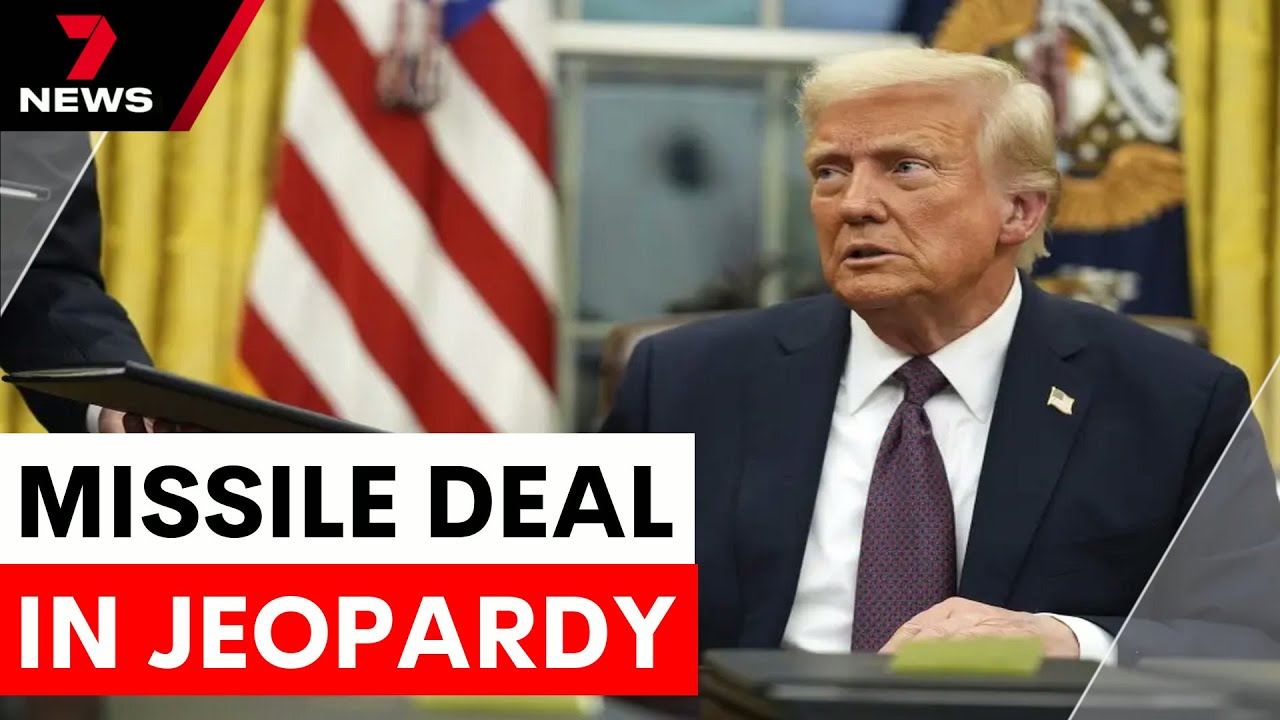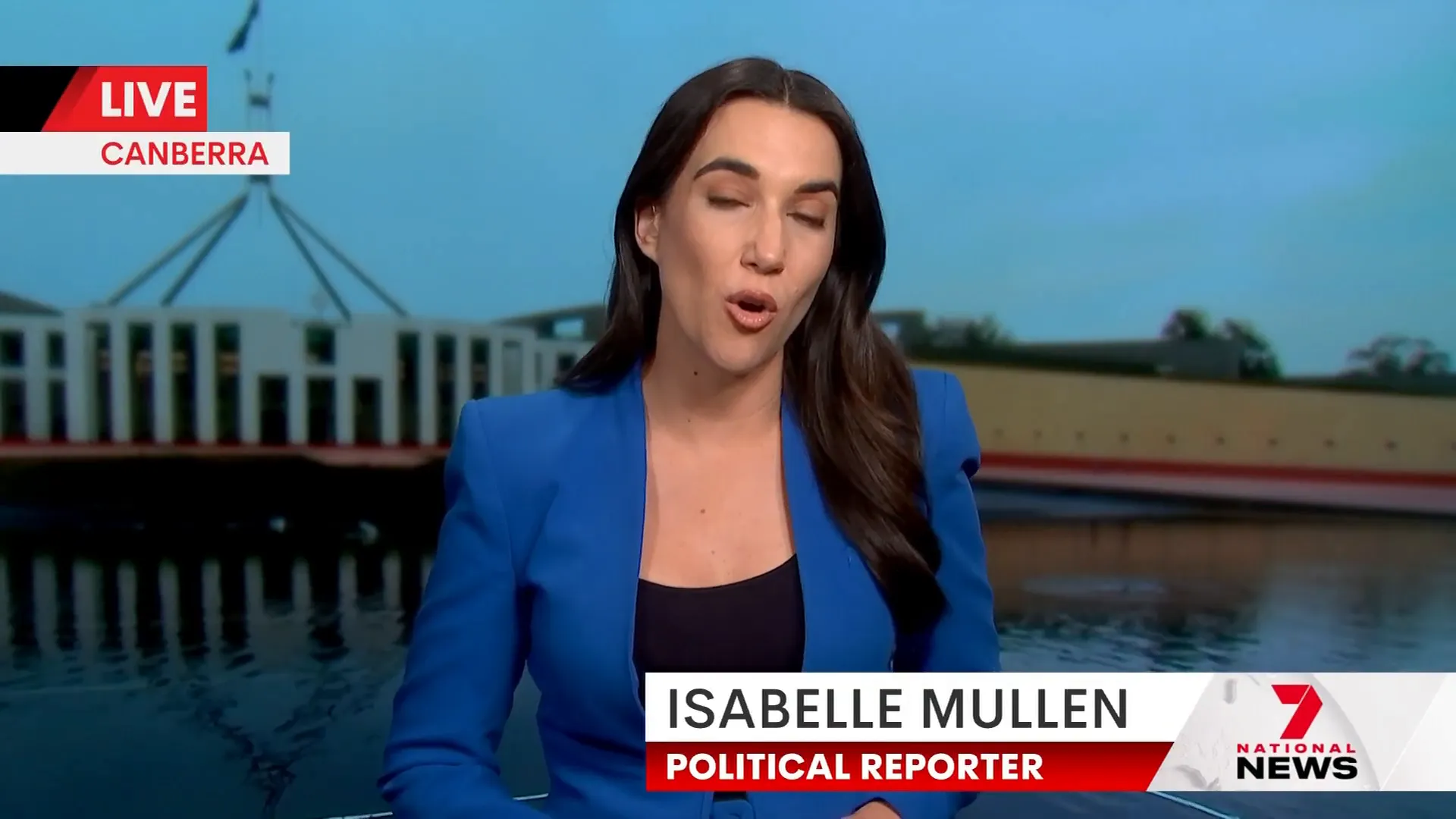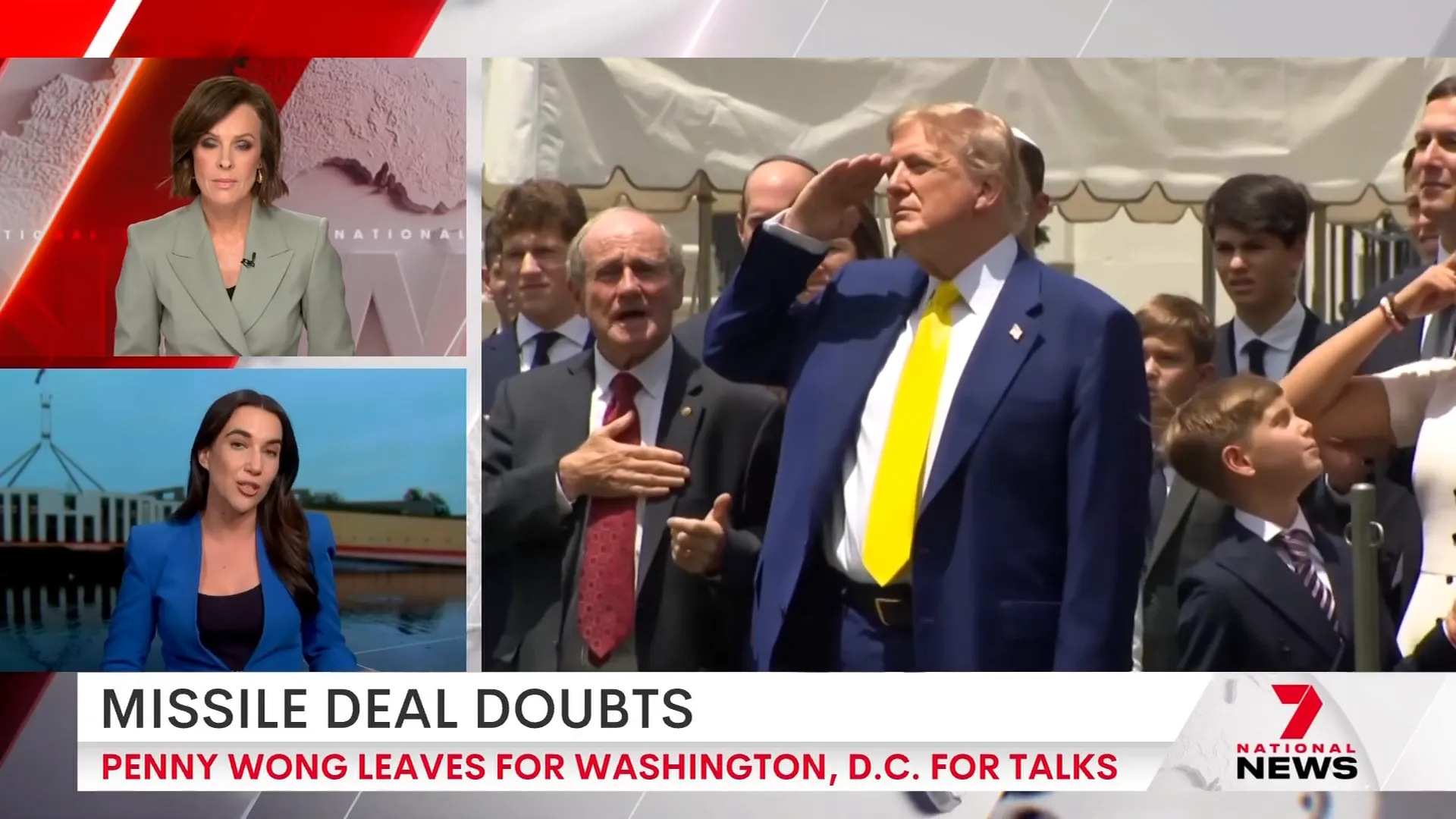Jul 1, 2025
Australia's $7 Billion Missile Deal at Risk Over Defense Spending

Australia is currently facing significant pressure from the United States to increase its defense spending in order to secure a critical $7 billion missile deal. This development has raised concerns about the future of the deal, as the Australian government navigates complex diplomatic negotiations with the White House. The stakes are high, with the US demanding a military budget boost to 3.5% of GDP—a target Australia has yet to meet.
Table of Contents
- Pressure Mounts as Foreign Minister Heads to Washington
- The Defense Spending Debate: Australia vs The US
- Diplomatic Efforts and Political Dynamics
- Looking Ahead: What’s Next for Australia’s Defense Strategy?
- Frequently Asked Questions
Pressure Mounts as Foreign Minister Heads to Washington
Foreign Minister Penny Wong is en route to Washington, DC, tasked with negotiating this pivotal issue. The missile deal, already approved by the US Congress, still requires the final endorsement from the White House. Ultimately, it is President Donald Trump who holds the decisive power to approve or reject the agreement.

There is growing concern that if Australia does not meet the requested defense spending target, the missile deal could fall through. The White House appears to be favoring countries that have already committed to increasing their military budgets, putting Australia in a tenuous position.
The Defense Spending Debate: Australia vs The US
Currently, Australia’s defense spending falls below the 3.5% of GDP target that President Trump has publicly demanded. This gap is causing friction between the two allies and casting doubt on whether the missile deal will proceed. The Australian Prime Minister has yet to meet with President Trump during his six months in office, which some see as a factor complicating negotiations.

Prime Minister Scott Morrison has emphasized that his priorities remain aligned with the Australian people, who are scheduled to have their say in the upcoming election on May 3. This democratic process remains a key consideration in Australia’s defense policy decisions.
Diplomatic Efforts and Political Dynamics
Despite the challenges, Penny Wong has reported that discussions with the US have been constructive and warm. President Trump even called to congratulate her on the Australian government's recent reelection, signaling a willingness to engage diplomatically.
However, there are political undercurrents at play. Republican pollster Brent Buchanan suggested that Kevin Rudd, Australia’s ambassador to the United States, might be a complicating factor. Rudd has been known to criticize President Trump in the past, although recently he appeared to soften his stance by praising the US president's decisive military actions in the Middle East.
Looking Ahead: What’s Next for Australia’s Defense Strategy?
Foreign Minister Wong is focused on securing the deal and ensuring that Australia’s defense interests are safeguarded. She is determined to get the meeting with the White House over the line and to advocate for Australia's position on defense spending and strategic partnerships.
The outcome of these discussions will have significant implications not only for Australia's military capabilities but also for its diplomatic relationship with the United States moving forward.
Frequently Asked Questions
Why is the $7 billion missile deal at risk?
The deal is at risk because the US demands that Australia increase its defense spending to 3.5% of GDP. If Australia does not meet this target, the White House may withhold final approval.
Has the missile deal been approved?
Yes, the deal has been approved by the US Congress but still requires the White House's final endorsement.
Who is negotiating on behalf of Australia?
Foreign Minister Penny Wong is currently in Washington to negotiate with the US government.
What is Australia's current defense spending?
Australia's defense spending is currently below the 3.5% of GDP target requested by the US.
What role does the Australian Prime Minister play in this?
Prime Minister Scott Morrison has yet to meet with President Trump and is prioritizing domestic political considerations ahead of the upcoming election.
Could political dynamics affect the deal?
Yes, political factors such as the role of Australia's ambassador to the US and past criticisms of President Trump could impact negotiations.